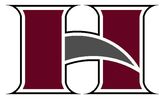Jada Sayles
The cycle of high school begins with an unfamiliar environment and ends with a student's lifelong plan. First-year students filter through a large variety of classes and extracurricular activities and select the courses they find interesting. However, most first-year students are not sure of what the future holds for them, so they pick classes that seem easy or exciting. The upper-class students pick classes they know will help them with career paths and futures. So, what really is the best path to take in the cycle of high school?
Some of the classes that students pick are AP (Advanced Placement) classes. Many students who plan to attend general four-year college tend to pick honor level or AP classes. Some students feel that these classes are like a preview of college, but others find that it is not that simple. For some students taking advanced classes is a beneficial opportunity, but others find that those classes are not worth it “I would say that they are worth it if they are classes that you are passionate about and interested in. But if it is an AP class for something that you dislike, it might not be worth it.” (Justin Schneider 11th grade)
The atmosphere of a school reflects the students and their feelings towards the school itself, some students enjoy school activities while some find that the school could offer more. Most students try to find the best parts in school to make it a more meaningful experience “Another part of school I like is extracurriculars and clubs, it just makes school more enjoyable.” (Lauren Hackney 11th grade) Doing extracurricular activities during high school helps students to meet new people and build great connections. Working with new people in school as a first-year student can be unsettling so the programs that help these students such as the first-year mentor system can really help with those fears “if I could give some advice to younger students, I would say don’t fear what you can’t see, keep your head up, and don’t quit” (Eesha Sharma 11th grade)
Being in high school means more responsibilities and less free time but what comes with that is a formative experience that will stick with us students for the rest of our lives, the time we spend in these four years dictates the pathway of our futures. These students will go on to do remarkable things in this world, but what we do now affects this and how we carry ourselves now will carry out onto our futures.
The cycle of high school begins with an unfamiliar environment and ends with a student's lifelong plan. First-year students filter through a large variety of classes and extracurricular activities and select the courses they find interesting. However, most first-year students are not sure of what the future holds for them, so they pick classes that seem easy or exciting. The upper-class students pick classes they know will help them with career paths and futures. So, what really is the best path to take in the cycle of high school?
Some of the classes that students pick are AP (Advanced Placement) classes. Many students who plan to attend general four-year college tend to pick honor level or AP classes. Some students feel that these classes are like a preview of college, but others find that it is not that simple. For some students taking advanced classes is a beneficial opportunity, but others find that those classes are not worth it “I would say that they are worth it if they are classes that you are passionate about and interested in. But if it is an AP class for something that you dislike, it might not be worth it.” (Justin Schneider 11th grade)
The atmosphere of a school reflects the students and their feelings towards the school itself, some students enjoy school activities while some find that the school could offer more. Most students try to find the best parts in school to make it a more meaningful experience “Another part of school I like is extracurriculars and clubs, it just makes school more enjoyable.” (Lauren Hackney 11th grade) Doing extracurricular activities during high school helps students to meet new people and build great connections. Working with new people in school as a first-year student can be unsettling so the programs that help these students such as the first-year mentor system can really help with those fears “if I could give some advice to younger students, I would say don’t fear what you can’t see, keep your head up, and don’t quit” (Eesha Sharma 11th grade)
Being in high school means more responsibilities and less free time but what comes with that is a formative experience that will stick with us students for the rest of our lives, the time we spend in these four years dictates the pathway of our futures. These students will go on to do remarkable things in this world, but what we do now affects this and how we carry ourselves now will carry out onto our futures.

